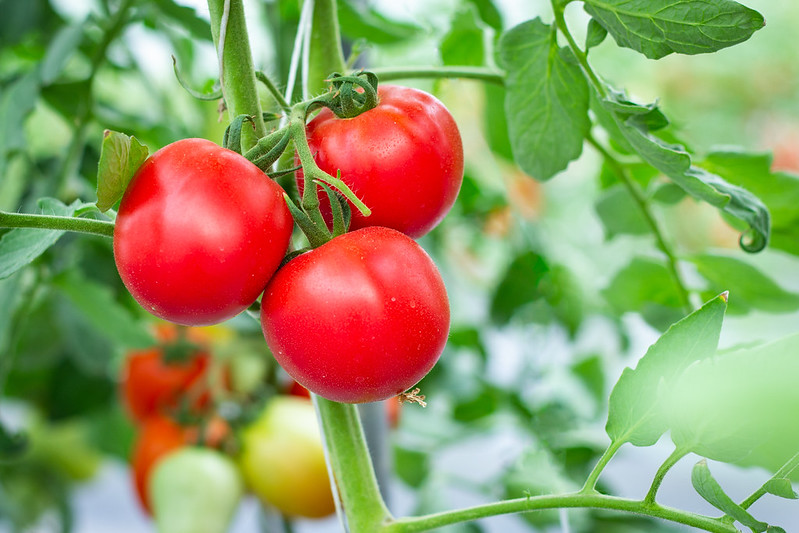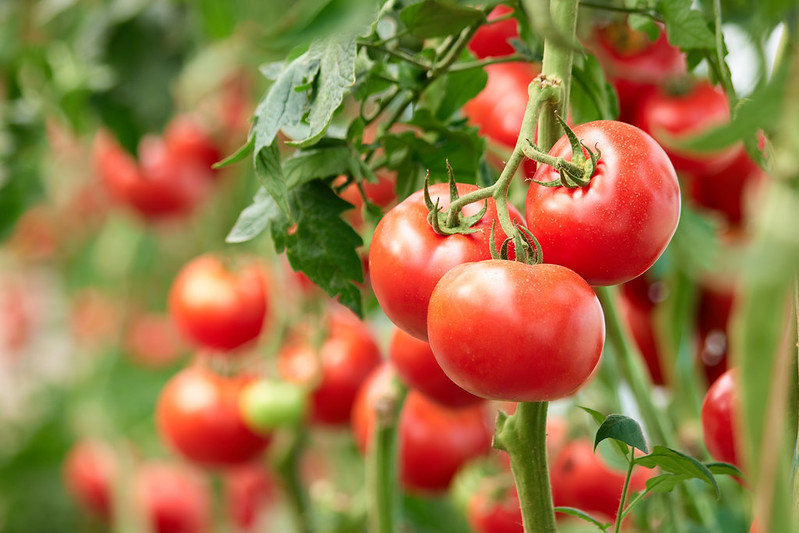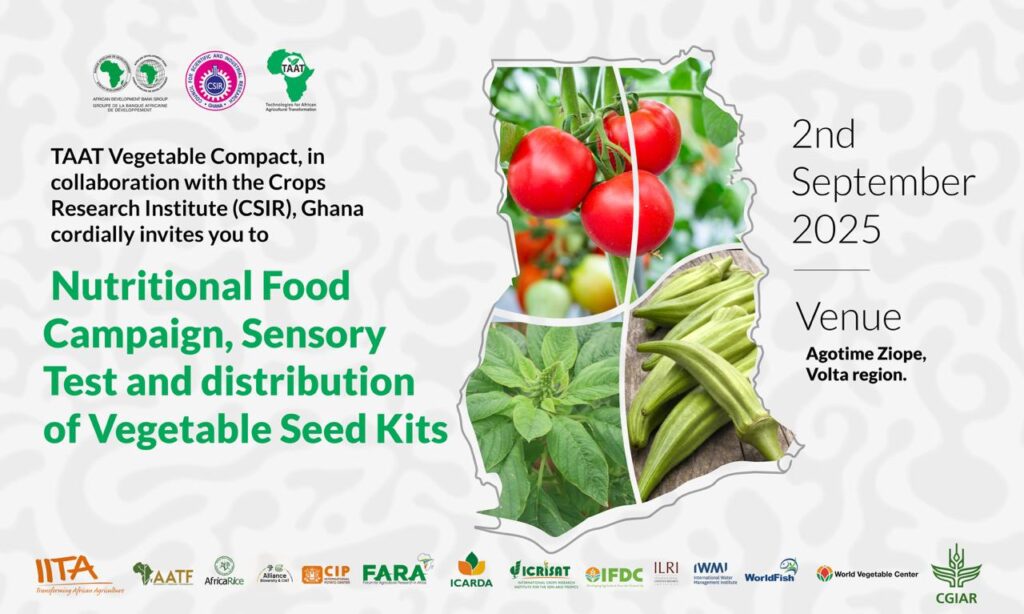
By Deborah Olaoluwa
High-yielding vegetable varieties developed through a research for development partnership are delivering yields of up to 20 tons per hectare, more than doubling Ghana’s national tomato average and transforming prospects for farmers and agribusiness operators.
The Technologies for African Agricultural Transformation (TAAT), in collaboration with the Council for Scientific and Industrial Research–Crop Research Institute (CSIR) and the World Vegetable Centre, launched the initiative in Volta Region’s Agortime-Ziope District under the TAAT Vegetable Compact framework, introducing disease-tolerant crops that promise to reshape vegetable sector profitability.
CRI Kwabena and Copia tomato varieties are demonstrating exceptional performance compared to traditional crops that typically yield 7-10 tons per hectare, according to field trial results from the collaborative research program.
The enhanced varieties offer an extended shelf life, reducing post-harvest losses and providing farmers and traders with greater flexibility in reaching urban markets, thereby addressing a critical challenge in Ghana’s vegetable supply chain.
Mawuli Abusah, District Director of Agriculture, emphasised the durability benefits for smallholder farmers supplying urban centres, noting that reduced spoilage during transportation can significantly increase farmer incomes.
Local processor Kuatudzo Esther Deladem reported that the new tomatoes’ lower water content has substantially improved processing efficiency while reducing costs and enhancing product quality for her operations.
“We encourage more farmers to embrace these varieties so we can reduce post-harvest losses in our communities,” Deladem said, highlighting the processing sector’s enthusiasm for the improved crops.
The project strengthens vegetable value chains by connecting farmers directly to commercial seed producers, ensuring sustainable access to improved varieties while building reliable supply networks.
Participating farmers reported stronger market demand and better financial returns compared to traditional varieties, though they requested government subsidies to improve the affordability of the enhanced seeds.
Dr Michael Kwabena Osei, Principal Research Scientist at CSIR-CRI, outlined plans to expand beyond demonstration plots toward full-scale national adoption of the improved varieties.
“By boosting productivity and creating reliable supply chains, these varieties position Ghana’s vegetable sector for both food security and business growth,” Osei explained.

The initiative addresses the persistent challenges facing Ghana’s vegetable sector, including low productivity, high post-harvest losses, and volatile supply chains, which have limited business growth and food security.
For agribusiness operators in the logistics, retail, and processing sectors, wider adoption could enhance raw material reliability and create opportunities for value-added products and the development of export markets.
Nutrition education components embedded in the program aim to increase domestic demand for vegetables, including tomato, okra, and amaranth, potentially expanding market opportunities for farmers and processors.
“The TAAT Vegetable Compact represents a shift toward more sustainable and profitable agribusiness practices that could improve resilience across Ghana’s vegetable production and processing ecosystem,” says Dr Mathieu Ayenan, the TAAT Vegetable Compact Coordinator.
“Field trials demonstrate that the improved varieties maintain consistent performance across various growing conditions, while exhibiting enhanced resistance to common diseases that traditionally reduce yields,” Dr Ayenan added.
The TAAT partnership approach, which connects research institutions, farmers, and commercial operators, creates a model for agricultural innovation that addresses multiple points in the value chain simultaneously.
Through TAAT, commercial seed production linkages ensure that successful varieties can be scaled sustainably without creating dependency on imported seeds or external technical support for farmers.
Market feedback indicates strong consumer acceptance of products from the new varieties, suggesting that quality improvements align with consumer preferences and market demand.
The compact’s focus on reducing post-harvest losses addresses a critical inefficiency in Ghana’s agricultural system, where significant portions of production are lost between harvest and consumption.
Improvements in the processing sector could position Ghana’s vegetable industry for greater value addition and potential participation in export markets as production scales up and quality standards improve, experts say.












